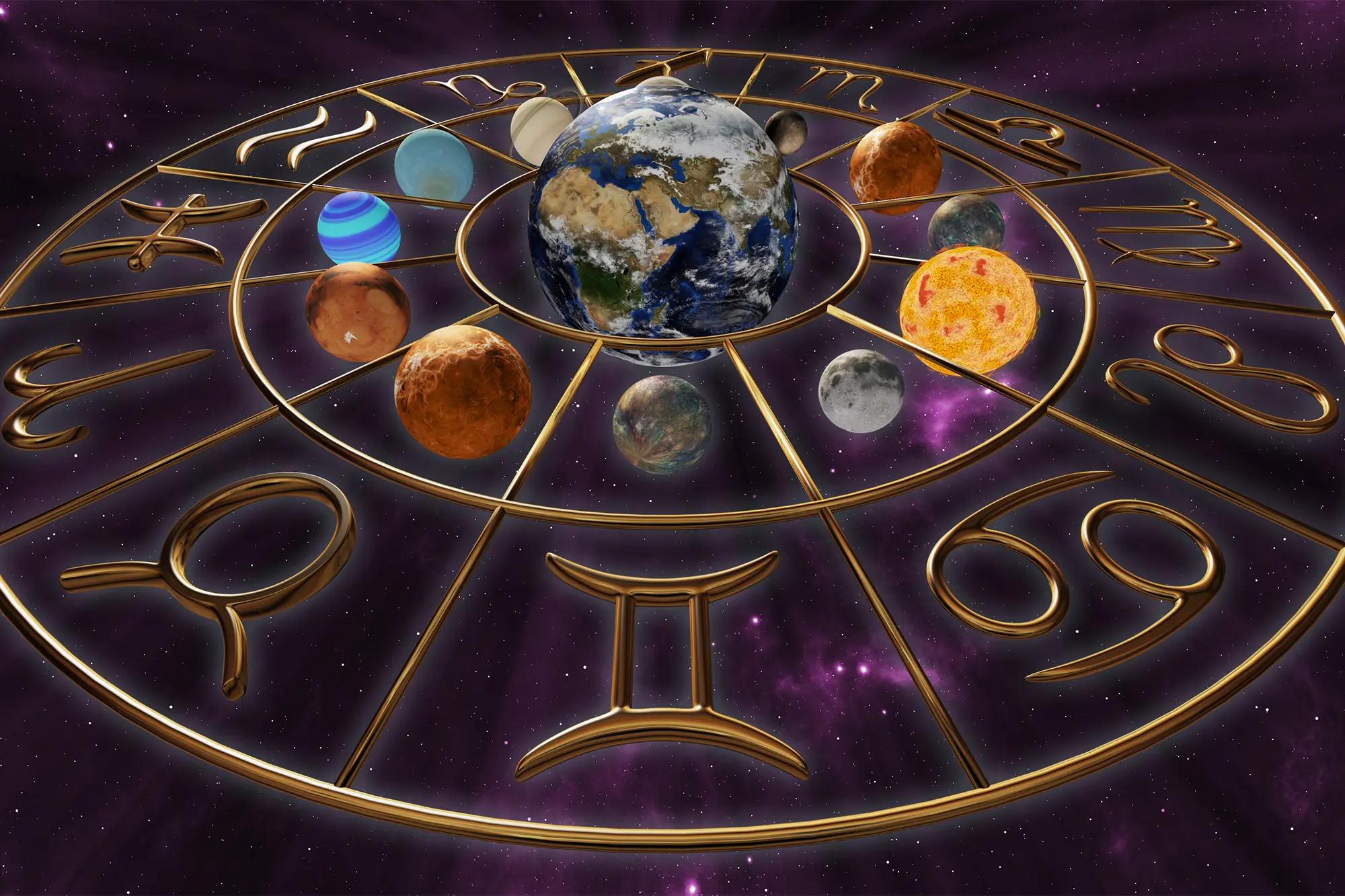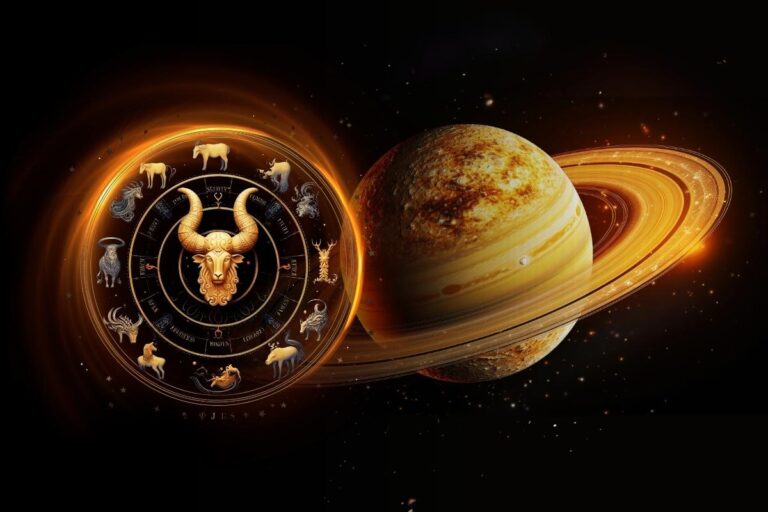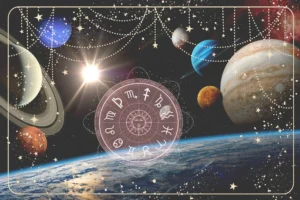Planetary Powerhouses: Exploring the Major Planets in Astrology: Since the dawn of civilization, humanity has looked to the stars for guidance and meaning. Astrology, the ancient practice of interpreting celestial bodies’ influence on human affairs, offers a fascinating perspective on our lives. At the heart of this system lie the planets, each with a distinct character and energetic influence. This comprehensive guide delves into the major planets in astrology, exploring their mythological roots, symbolic meanings, and how they impact our personalities, relationships, and life journeys.
The Seven Celestial Wanderers: Unveiling the Major Planets
In astrology, the seven major planets (excluding the Sun and Moon) are considered to have the most significant influence on our lives. These celestial bodies, constantly in motion, represent core aspects of the human experience:
- Mars: The Red Planet, named after the Roman god of war, embodies assertive energy, drive, ambition, and our fight-or-flight response.
- Venus: The dazzling Venus, named after the Roman goddess of love and beauty, governs love, pleasure, attraction, values, and our sense of aesthetics.
- Mercury: The swift messenger god Mercury, named after the Roman counterpart, influences communication, learning, intellect, and adaptability.
- Jupiter: The largest planet in our solar system, Jupiter, named after the king of the Roman gods, represents expansion, luck, growth, optimism, and abundance.
- Saturn: The ringed giant Saturn, named after the Roman god of time, embodies limitations, responsibility, discipline, structure, and karma.
- Uranus: The distant, icy Uranus, named after the Greek god of the sky, represents rebellion, innovation, change, individuality, and awakening.
- Neptune: The farthest planet from the Sun, Neptune, named after the Roman god of the sea, governs intuition, dreams, spirituality, illusion, and the unconscious mind.
Mythology and the Planets: Unveiling Symbolic Meanings
The names and symbolic associations of the planets stem from ancient mythology. Studying these myths offers deeper insights into the planets’ energetic influences:
- Mars: The Roman god Mars was known for his courage and aggression. Similarly, Mars in astrology represents our assertive drive and how we take action in the world.
- Venus: The Roman goddess Venus embodied love, beauty, and pleasure. Likewise, Venus in astrology governs our sense of aesthetics, attraction, and how we connect with others.
- Mercury: The swift messenger god Mercury was known for his eloquence and wit. In astrology, Mercury influences our communication skills, intellect, and ability to learn.
Understanding the mythological background of each planet adds a layer of richness and depth to astrological interpretation.
The Planets and Your Personality:
The placement of each planet in your birth chart, along with its sign and aspects (angles between planets), reveals unique aspects of your personality:
- Mars: Indicates your drive, courage, and how you assert yourself.
- Venus: Shows your values, how you express love and affection, and your aesthetic preferences.
- Mercury: Represents your communication style, learning process, and intellectual strengths.
By understanding the planetary placements in your chart, you gain valuable insights into your core personality traits and how you navigate the world.
The Planets and Your Relationships:
The planets also influence how you connect with others:
- Venus: Plays a major role in your relationship style, what you value in a partner, and how you express affection.
- Mars: Indicates your assertiveness level in relationships and how you handle conflict.
- Jupiter: Represents your approach to commitment, optimism, and how you seek abundance in relationships.
Understanding these planetary influences can help you navigate relationship dynamics and build stronger connections.
The Planets and Your Life Journey:
The planets also play a significant role in your life path:
- Saturn: Represents challenges, limitations, and the lessons you need to learn throughout your life.
- Jupiter: Indicates areas of growth, expansion, and where you might experience good fortune.
- Uranus: Represents unexpected changes, disruptions, and opportunities for personal evolution.
By understanding these planetary influences, you can gain a broader perspective on your life journey and approach challenges with greater awareness.
Beyond the Basics: Exploring Planetary Aspects
The aspects (angles) formed between planets in your birth chart create a unique energetic interplay. These aspects can modify or amplify the influence of each planet. Here are some major aspects to consider:
- Conjunction: Two planets close together, indicating a blended influence and a strong focus on the areas they govern.
- Opposition: Two planets at opposite sides of the zodiac, creating tension and a need for balance between their opposing energies.
-
- Trine: Two planets in a harmonious angle, creating a flow of energy and ease in areas they govern.
- Square: Two planets in a challenging angle, creating tension and potential conflict that can lead to growth if navigated effectively.
- Sextile: Two planets in a supportive angle, offering opportunities and support in areas they govern.
Understanding planetary aspects requires a deeper knowledge of astrology, but even a basic grasp can enhance your interpretation of your birth chart and life path.
The Planets in Action: Everyday Examples
Let’s explore how the planets might manifest in everyday life:
- Mars in Action: If you have Mars in Aries, you might be known for your directness and competitive spirit. You might excel in athletics or enjoy tackling challenges head-on.
- Venus in Action: If you have Venus in Libra, you might prioritize creating harmonious relationships. You might be a skilled diplomat or have a natural talent for aesthetics.
- Mercury in Action: If you have Mercury in Gemini, you might be a quick learner with a talent for communication. You might enjoy intellectual discussions and thrive in fast-paced environments.
These are just a few examples, and the expressions of each planet will vary depending on their placement, aspects, and the rest of your birth chart.
The Evolving Landscape of Astrology:
The field of astrology is constantly evolving. Here are some recent trends to consider:
- The Rise of Evolutionary Astrology: This approach focuses on using astrology for personal growth and transformation.
- The Integration of Psychology: Some astrologers are incorporating psychological concepts into their interpretations.
- Technological Advancements: Astrology apps and websites make the practice more accessible than ever before.
The Final Word:
The planets offer a fascinating lens through which to view ourselves and the world around us. By understanding the major planets and their influences, you can gain valuable insights into your personality, relationships, and life journey. Remember, astrology is not a deterministic system; it offers a framework for self-discovery and empowerment. Embrace the knowledge of the planets and use it to navigate your life’s path with greater awareness and purpose.
Further Exploration:
This guide has provided a foundation for understanding the major planets in astrology. To delve deeper, consider exploring these resources:
- Books on planetary interpretations
- Online astrology resources
- Consulting with a professional astrologer
As you embark on your astrological journey, remember, the stars hold a wealth of knowledge waiting to be unlocked.










+ There are no comments
Add yours